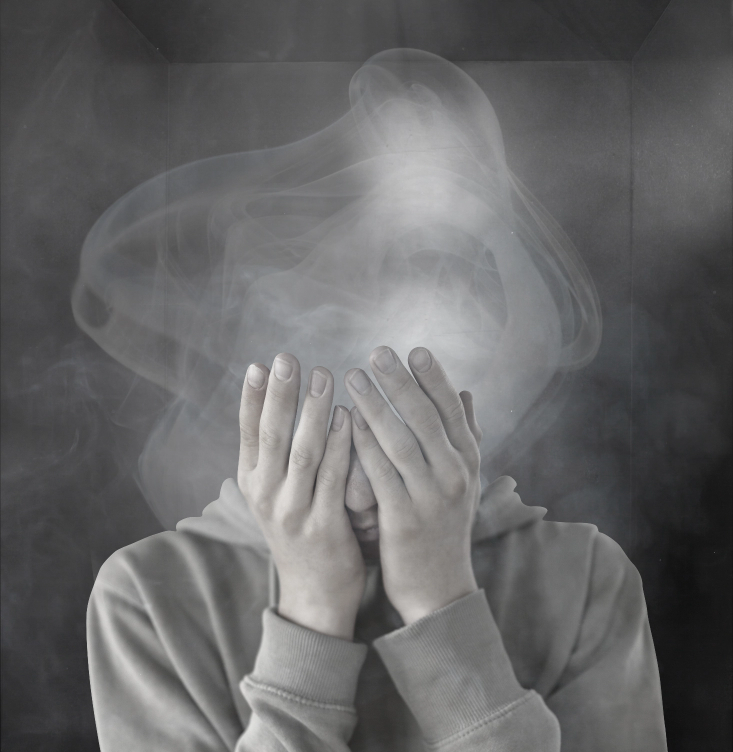What is Depression?
Depression is a mental health condition that affects person’s mood, thoughts, and ability to function. It involves persistent low moods or loss of interest in activities, along with changes in sleep, energy, appetite, concentration, self worth. These symptoms last for at least 2 weeks, causing significant distress in daily life.
How Does Counselling for Depression Work?
Counselling and therapy sessions help you understand how depression affects your thoughts, emotions, behaviours, as well as equip you with practical skills to cope more effectively.
Therapy enables you to understand what shapes your emotional experience, build healthier thinking patterns and strengthen emotional regulation. Over time, you will experience greater clarity, and better ability to navigate daily life.
Counselling draws from evidence based approaches like:
- CBT
- Mindfulness based strategies
- Psychodynamic or relational approaches

Role of the Counsellor
A counsellor offers emotional and psychological support through collaborative conversations. This involves identifying triggers, and drawing strengths to support recovery. Depending on the severity of your condition, the counsellor may also recommend consulting a GP or psychiatrist for added support.

Understanding the Difference Between Depression and Sadness
While sadness and depression can often feel similar, they are fundamentally different experiences that deserve attention. Here’s how to distinguish between the two:
Duration And Intensity
Sadness is typically a fleeting emotion that arises in response to a specific situation or event, often easing as time passes. In contrast, depression is a persistent condition that can linger for weeks, months, or even years.
Impact On Daily Life
While sadness might not significantly disrupt your everyday activities, depression can have a profound effect on various aspects of life. It can interfere with your ability to enjoy life, maintain relationships, engage in social activities, and perform tasks effectively. Those experiencing depression often find it difficult to reclaim their sense of joy and purpose.
Causes And Triggers
Sadness is generally triggered by specific life events or circumstances, such as loss or disappointment. Although depression can also stem from these experiences, it may be influenced by a range of factors, including underlying mental health conditions or past trauma. This complexity often makes it harder to pinpoint a singular cause for depression.
Common Causes of Depression
Depression can arise from a variety of sources, often intertwining and compounding one another. Understanding these common causes can provide insight into the condition and help guide the path to recovery.
Chronic Illness
Living with a long-term health condition, such as cancer or chronic pain, can significantly affect emotional well-being. The ongoing struggle with physical health issues can lead to feelings of hopelessness and despair, making individuals more vulnerable to depression.
Traumatic Life Events
Experiencing trauma, significant loss, or major life changes—such as the death of a loved one, abuse, or divorce—can deeply impact mental health. These events can trigger a range of emotional responses and may contribute to the onset of depressive symptoms as individuals grapple with their feelings.
Psychological Factors
Certain thought patterns and unresolved traumas can play a significant role in the development of depression. Self-critical thinking, negative beliefs about oneself, and the inability to process past experiences can create a cycle of distress that fosters the condition.
Genetic Predisposition
A family history of mental health disorders, including depression and anxiety, can increase the likelihood of experiencing similar issues. Genetics can influence brain chemistry and emotional regulation, making it essential for individuals with a family background in mental health conditions to be mindful of their own emotional well-being.
Environmental Factors
Social circumstances, such as isolation, workplace stress, or financial difficulties, can act as triggers for depression. These external pressures can overwhelm an individual’s ability to cope, leading to feelings of inadequacy and sadness.
Unhealthy Coping Strategies
Turning to unhealthy coping mechanisms—such as overeating, substance abuse, or withdrawing from social interactions—can exacerbate feelings of depression. These strategies often provide only temporary relief, ultimately contributing to a cycle of negative emotions and worsening mental health.
Signs You May Need Counselling for Depression
If your feelings of sadness or emptiness persist for more than two weeks and begin to affect your daily life, it may be time to seek professional counselling for depression
Persistent Sadness or Hopelessness
You may feel empty, tearful, or disconnected from joy most days, even when nothing specific seems wrong.
Loss of Interest in Enjoyed Activities
Activities that once brought pleasure, such as hobbies, social gatherings, or work, may no longer hold interest or meaning.
Sleep Disturbances
Depression often disrupts sleep patterns, leading to insomnia, early waking, or oversleeping.
Low Energy or Constant Fatigue
You may feel physically and mentally drained, making even small tasks feel overwhelming.
Noticeable Weight Changes
Significant weight gain or loss may occur due to changes in appetite or eating habits linked to emotional distress.
Feelings of Guilt or Worthlessness
Persistent self-blame or feelings of inadequacy can reinforce the cycle of depression, making it harder to recover.
Thoughts of Death or Suicide
In severe cases, depression can lead to thoughts of death or self-harm.
Long-Term Benefits of Counselling for Depression
Counselling can serve as support for those grappling with the heavy weight of depressive symptoms. Through dialogue and therapeutic techniques, counselling offers a space to explore the complexities of your feelings and develop healthier coping strategies.

In a counselling setting, you can openly discuss the challenges you face. This process allows you to uncover underlying issues contributing to your depression. By gaining insight into these struggles, you can begin to address them constructively, paving the way for healing and growth.
Counselling provides an opportunity to learn and practise new skills that help you manage your emotions effectively. Through guided discussions and exercises, you can discover healthy coping mechanisms tailored to your needs. These skills not only assist you in navigating difficult emotions but also empower you to face life’s challenges with resilience.
Depression can often lead to feelings of isolation. Through counselling, you can explore your relationship patterns and learn how to cultivate more meaningful connections that contribute to your well-being.
At the heart of effective counselling is the work on cognitive and behavioural patterns. Counsellors can help you identify and challenge negative thoughts that may be exacerbating your depression. By reframing these thoughts and adopting a more positive outlook, you can manage your symptoms more effectively and regain a sense of control over your life.
Counselling centres adopt a variety of therapeutic methods to cater to individual needs. Techniques such as Eye Movement Desensitisation and Reprocessing (EMDR), Cognitive Behavioural Therapy (CBT), and exposure therapy are often employed to ensure that each person receives the most beneficial support. This eclectic approach allows for a personalised experience, meeting you where you are in your journey.
Talking to a therapist provides a safe haven to discuss life’s difficulties. With their guidance, you can develop positive strategies to tackle adversities head-on. Learning to cope with challenges in healthier ways can be a transformative aspect of your healing process, leading to greater emotional stability and personal growth.
Why Choose EMCC When You’re Seeking Help for Depression
At EMCC, we offer evidence-informed counselling for individuals experiencing depressive symptoms.
Experienced Counsellors Trained in Mood and Emotional Difficulties
Our experienced counsellors are trained to work with clients navigating low moods, stress and depression. They draw from recognised therapeutic frameworks to support with sensitivity, professionalism and respect for one’s lived experiences.
A Safe and Non-Judgmental Space to Talk
We understand that sharing personal struggles takes courage. EMCC offers a confidential, supportive environment where you can speak openly without fear of judgment.
Evidence-informed and Integrative Therapeutic Approaches
Counselling for depression uses proven therapeutic modalities and integrate mediation techniques when necessary to address both emotional and relational challenges.
Personalised Care for Every Individual’s Needs
Each counselling plan is customised to your unique circumstances, goals, and pace of progress to ensure meaningful, sustainable outcomes.
Guidance Toward Long-Term Emotional Well-Being
Our goal is not only to help you cope with depression but also to build resilience, restore balance, and enhance overall mental wellness for the long term.
You Don’t Have to Face Depression Alone
Depression can make you feel isolated, but help is available. Seeking professional help for depression is a step toward understanding yourself, finding relief, and rebuilding hope. At EMCC, we’ll walk alongside you with compassion and care, helping you rediscover strength, purpose, and emotional wellness.

FAQs About Depression Counselling
1. Is counselling better than mediation for addressing depression?
The answer depends on the severity of your symptoms. For mild cases of depression, counselling alone can often be sufficient. However, more severe symptoms might benefit from a combination of therapy and medication. For children and teenagers under 18, counselling is generally recommended over medication. Our experienced counsellors and psychotherapists will assess your situation and suggest the most suitable course of action tailored to your needs.
2. Can my depression get better without counselling?
While it is possible to recover from mild depression without professional help, engaging in counselling provides valuable support that can enhance your understanding of your difficulties. Therapy equips you with coping strategies and tools that are instrumental in managing your condition, making it easier to navigate the ups and downs of life.
3. How many counselling sessions will I need for depression?
The number of sessions you may require varies depending on your individual circumstances and the severity of your symptoms. Those experiencing mild depression might find that 6 to 12 sessions are adequate, while individuals with more severe symptoms may need several years of ongoing support. It’s always best to seek help as early as possible, as early intervention plays a crucial role in the recovery process.
4. What can I expect during my counselling sessions for depression?
In your counselling sessions, you can expect a safe and non-judgmental environment where you can openly discuss your feelings and experiences. Your counsellor will guide you through exploring your thoughts and emotions, helping you to gain clarity and understanding. You may also learn practical skills to help manage your depression and enhance your overall well-being.


